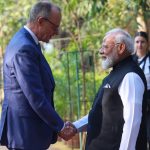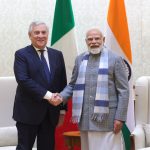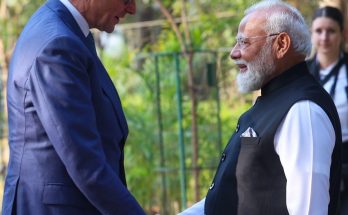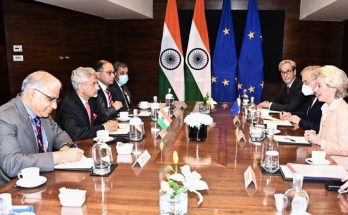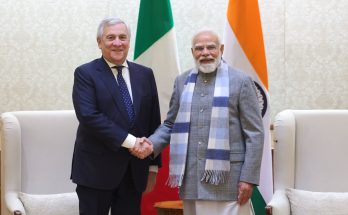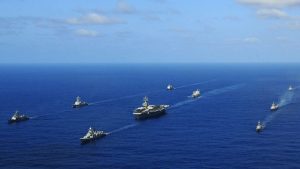
Ending many visions and revisions, India has finally invited Australia to participate in the annual Malabar naval exercises next month, a strategic move that marks a major upgrade for the Quad’s capacity to shape a free and prosperous Indo-Pacific region.
The Malabar Exercises featuring navies of India, the US, Australia and Japan will be held in two stages in the Bay of Bengal on November 3-6 and November 17-20.
India’s Ministry of Defence announced the invite to Australia on October 19. “As India seeks to increase cooperation with other countries in the maritime security domain and in the light of increased defence cooperation with Australia, Malabar 2020 will see the participation of the Australian Navy,” the defence ministry said. The final decision to invite Australia was taken soon after the first standalone meeting of the foreign ministers of Quad countries in Tokyo on October 6.
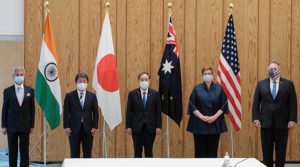
The participation of Australia in the Malabar exercise has been planned for a long time, but was repeatedly deferred due to Chinese sensitivities. China’s increased assertiveness on territorial and sovereignty issues and the stalemate in the India-China border standoff seems to have tipped the balance. Australia was invited as a non-permanent partner by India for Malabar in 2007, but Beijing issued a demarche to India, US, Japan and Australia seeking details of the exercise.
The participation of Australia in the Malabar 2020 marks the end of the more than decade-long vacillation over upgrading the Malabar exercise and the Quad. This is the beginning of institutionalization of the Quad which has aroused deep suspicion in Beijing which sees the four-nation grouping as a gang-up against a rising superpower.
The decision to invite Australia to the Malabar exercise is set to rile China once again as it takes place at a time when Beijing’s ties with Canberra have plummeted to a new low, with Beijing imposing an 80% tariff on barley, launching an anti-dumping investigation of Australian wine, blocking Australian beef, arresting an Australian journalist and banning two academics from visiting China.
A week after the Quad meeting in Tokyo, Chinese State Councillor and Foreign Minister Wang Yi lashed out against the US’ design to create an “Indo-Pacific NATO.”
Welcoming the invite, Australian Foreign Minister Marise Payne underlined that the announcement was another important step in Australia’s deepening relationship with India. “This builds on the Comprehensive Strategic Partnership, to which Prime Minister Morrison and Prime Minister Modi agreed on 4 June 2020, and which I progressed with my counterpart, Minister of External Affairs Jaishankar, this month when we met in Tokyo.
“It will bolster the ability of India, Australia, Japan and the United States to work together to uphold peace and stability across our region.”
“High-end military exercises like MALABAR are key to enhancing Australia’s maritime capabilities, building interoperability with our close partners, and demonstrating our collective resolve to support an open and prosperous Indo-Pacific,” Australia’s Defence Minister Linda Reynolds CSC said.
“Exercise MALABAR also showcases the deep trust between four major Indo-Pacific democracies and their shared will to work together on common security interests.”
Author Profile

- Manish Chand is Founder and Editor-in-Chief of India Writes Network (www.indiawrites.org) and India and World, a pioneering magazine focused on international affairs. He is CEO, Centre for Global India Insights, an India-based think tank focused on global affairs.
Latest entries
 India and the WorldJanuary 13, 2026India, Germany raise the bar for defence, economic ties
India and the WorldJanuary 13, 2026India, Germany raise the bar for defence, economic ties India and the WorldDecember 12, 2025India-Italy bonding: Tajani’s visit raises the bar for business, maritime ties
India and the WorldDecember 12, 2025India-Italy bonding: Tajani’s visit raises the bar for business, maritime ties In ConversationNovember 26, 2025G20 is a Force for global Good
In ConversationNovember 26, 2025G20 is a Force for global Good articlesNovember 26, 2025Rescuing G20 from North-South divide: Ubuntu Moment
articlesNovember 26, 2025Rescuing G20 from North-South divide: Ubuntu Moment

